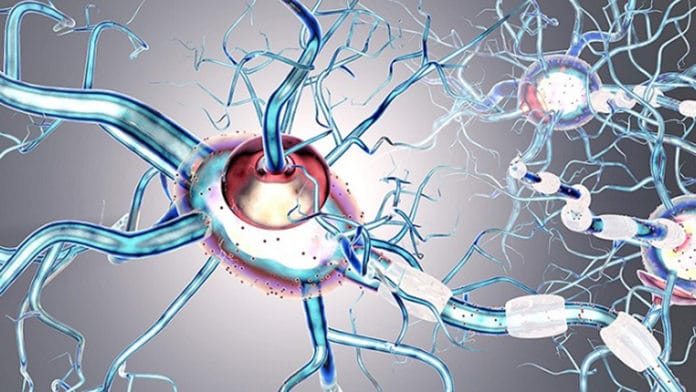Sugar N-acetylglucosamine (GlcNAc) branching modulates cell surface receptor availability. In mice, it was found that deficiency of GlcNAC leads to inflammatory demyelination, reduced myelination, and neurodegeneration.
GlcNAc is a rate-limiting substrate for N-glycan branching, but endogenous serum levels in patients with multiple sclerosis (MS) are unknown.
In a new study, scientists investigated a marker of endogenous serum GlcNAc levels in patients with MS.
They found that low serum levels of the sugar N-acetylglucosamine (GlcNAc) are associated with progressive disability and neurodegeneration in multiple sclerosis (MS).
The University of California, Irvine, conducted the study, in collaboration with scientists from Charité – Universitätsmedizin Berlin, Germany, and the University of Toronto, Canada. In this study, scientists found that GlcNAc is reduced in the serum of progressive MS patients and those with worse clinical disability and neurodegeneration.
Michael Demetriou, MD, Ph.D., FRCP(C), said, “We found the serum levels of a marker of GlcNAc was markedly reduced in progressive MS patients compared to healthy controls and patients with relapsing-remitting multiple sclerosis.”
The first author of the study, Alexander Brandt, MD, adjunct associate professor of neurology at the UCI School of Medicine and previously associated with the Experimental and Clinical Research Center, Charité – Universitätsmedizin Berlin and Max Delbrueck Center for Molecular Medicine, Germany, added, “Lower GlcNAc serum marker levels correlated with multiple measures of neurodegeneration in MS, namely worse expanded disability status scale scores, lower thalamic volume, and thinner retinal nerve fiber layer. Also, low baseline serum levels correlated with a greater percentage of brain volume loss at 18 months.”
Michael Sy, MD, Ph.D., assistant professor in residence in the Department of Neurology at UCI and a co-author of the study, said, “Our findings open new potential avenues to identify patients at risk of disease progression and neurodegeneration so that clinicians can develop and adjust therapies accordingly.”
Journal Reference:
- Alexander U. Brandt, MD et al. N-Acetylglucosamine With Progressive Multiple Sclerosis and Neurodegeneration. DOI:10.1001/jamaneurol.2021.1116
